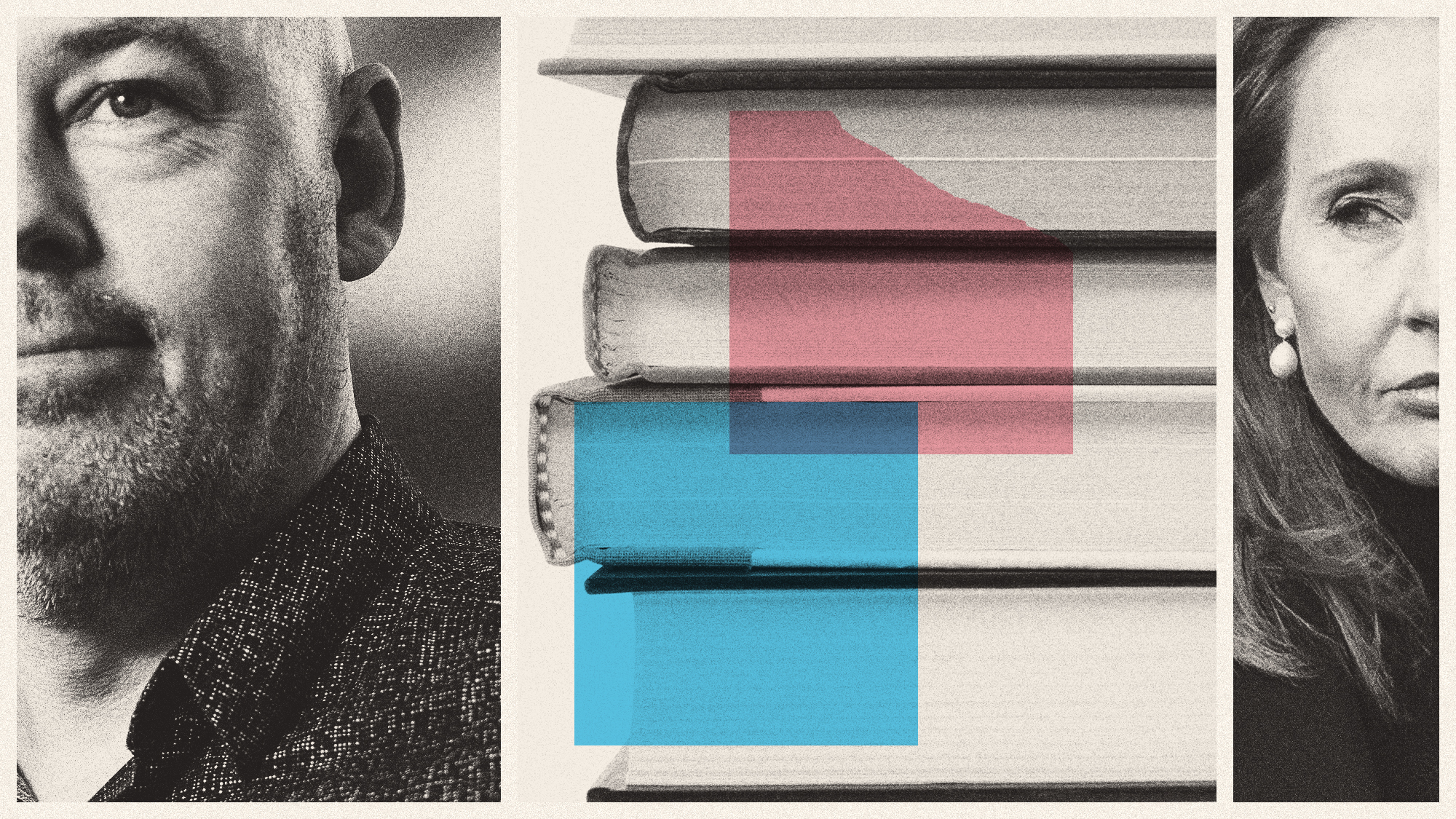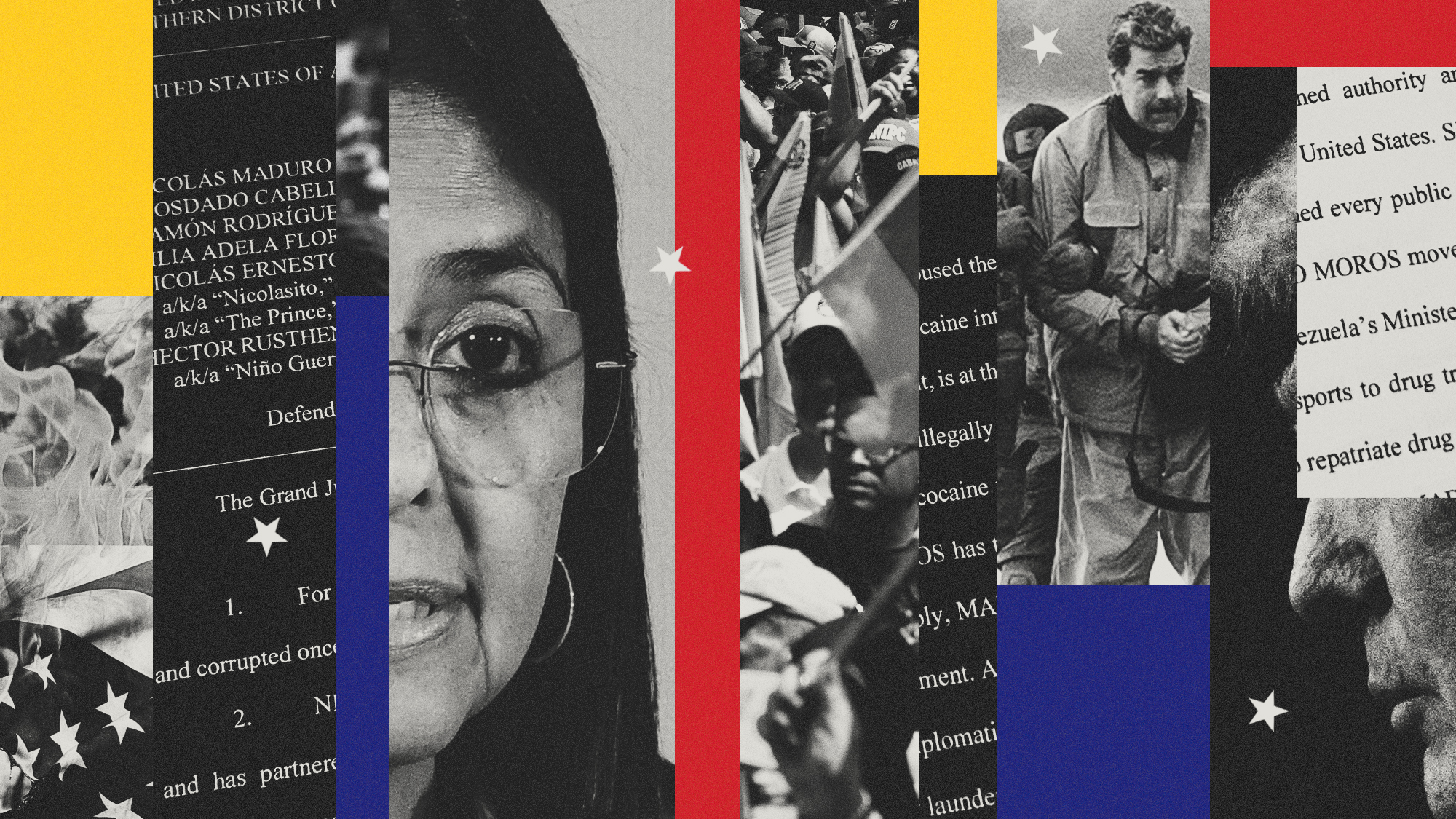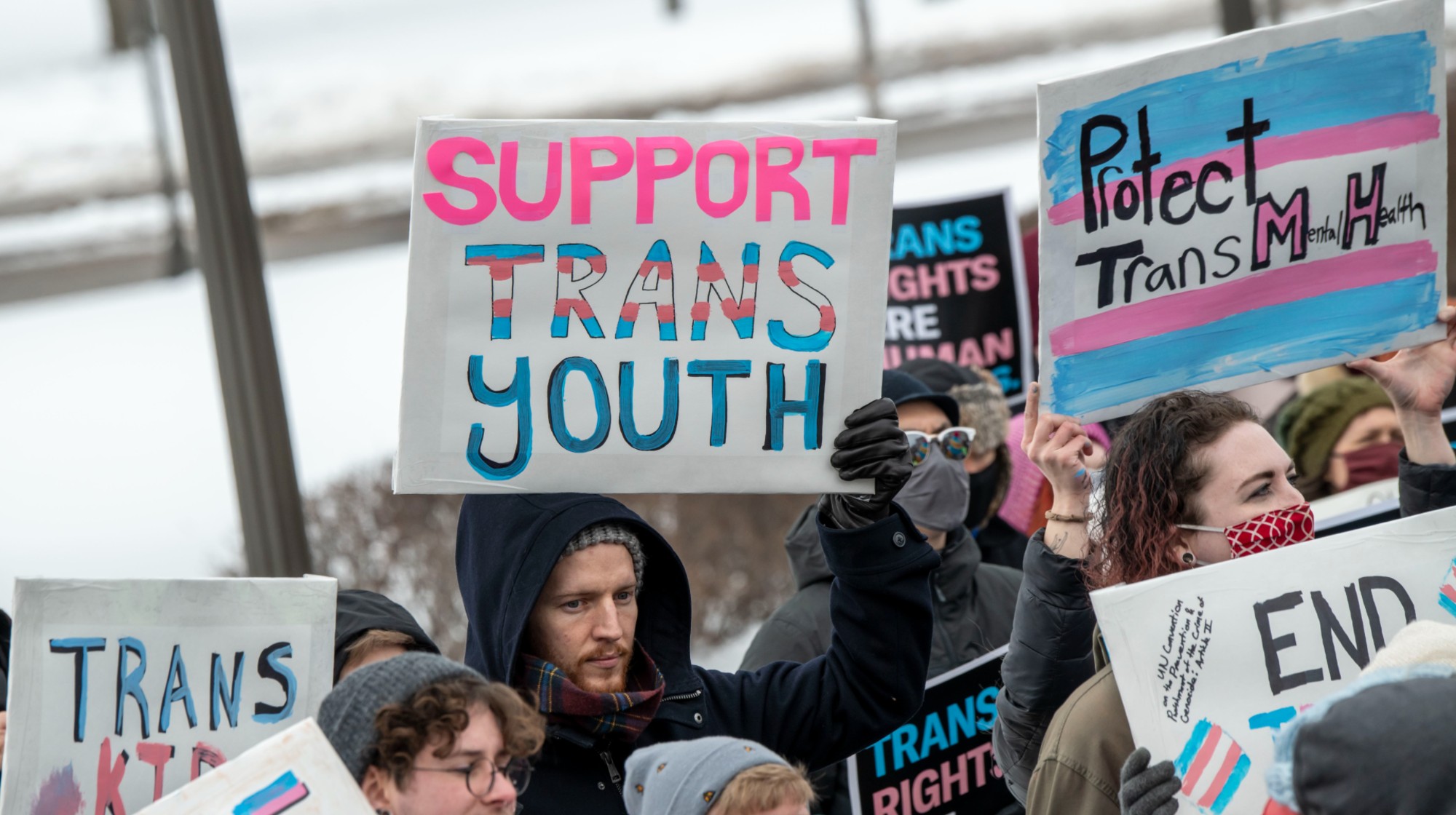Anti-trans scandal roils major LGBTQ+ literary prize as authors withdraw en masse
Multiple nominees for the UK's premier queer writing award have removed themselves from contention to protest the inclusion of a self-proclaimed 'trans-exclusionary radical feminist' in their ranks


A free daily email with the biggest news stories of the day – and the best features from TheWeek.com
You are now subscribed
Your newsletter sign-up was successful
Since its launch in 2011, the U.K.'s Polari Prize has become one of the most prestigious LGBTQ+ literary awards in the world, amplifying and celebrating a generation of queer literature and authors from a "wealth of genres and forms, including poetry, memoir, crime and thriller, and romantasy." However, as the awards prepare for their 15th anniversary this year, the Polari Prize has been rocked by an unfolding controversy over nominee John Boyne, a self-described "TERF" or "trans-exclusionary radical feminist," who celebrated author J.K. Rowling's history of anti-trans bigotry in an essay for her birthday last month. In response to Boyne and his novel "Earth" being longlisted for this year's Polari Prize, multiple nominees and judges have withdrawn their participation in the annual event.
'Radically different positions'
The Polari Prize has become "mired in controversy" with Boyne's inclusion "attracting negative attention" almost immediately after the awards longlist was published on Aug. 1, said Assigned Media. And while the Polari Prize committee "addressed the controversy" in a statement acknowledging Boyne's anti-trans history, the group ultimately "fueled the flames" by defending his nomination in general. "We can at times hold radically different positions on substantive issues," the committee said in their statement, calling the ongoing controversy "one of those times."
A post shared by Polari Prize (@polariprize)
A photo posted by on
While the prize committee "might believe" that by maintaining Boyne's nomination they are being "inclusive of authors with differing beliefs," the transgender exclusionary movement is not a "healthy philosophical questioning of what gender means," said fellow Polari nominee Avi Ben-Zeev in a short message on Instagram. Still, while Ben-Zeev can "appreciate" other authors who have withdrawn themselves from the running, to do so himself "would mean erasing my trans story, my voice," he said. That, ultimately, would mean "letting transphobic ideologues win."
The Week
Escape your echo chamber. Get the facts behind the news, plus analysis from multiple perspectives.

Sign up for The Week's Free Newsletters
From our morning news briefing to a weekly Good News Newsletter, get the best of The Week delivered directly to your inbox.
From our morning news briefing to a weekly Good News Newsletter, get the best of The Week delivered directly to your inbox.
'Rising anti-trans hatred'
In addition to the 12 authors and two judges who have publicly withdrawn from participating in Polari over Boyne's inclusion so far, more than 800 authors and publishing industry figures have signed an open letter calling for his removal from the awards longlist. While his inclusion would have been "inappropriate and hurtful to the wider community of LGBTQ+ readers and writers" at any time, the letter's authors said, the fact that it's happening "in the context of rising anti-trans hatred and systematic exclusion of trans people from public life in the U.K. and across the world" is "inexcusable."
While Boyne is "probably strong enough to withstand" this ongoing controversy, it's a "different matter" for the Polari Prize itself, said Liam Kelly at The Telegraph. The prize committee recognizes the "hurt and anger" that Boyne's inclusion has caused, the group said in a statement Monday to the outlet. Accordingly, the group will be "undertaking a full review" of their prize process, and plans to consult "representatives from across the community ahead of next year's awards."
The Polari Prize shortlists are expected to be released in September, with the final awards named this coming November.
A free daily email with the biggest news stories of the day – and the best features from TheWeek.com
Rafi Schwartz has worked as a politics writer at The Week since 2022, where he covers elections, Congress and the White House. He was previously a contributing writer with Mic focusing largely on politics, a senior writer with Splinter News, a staff writer for Fusion's news lab, and the managing editor of Heeb Magazine, a Jewish life and culture publication. Rafi's work has appeared in Rolling Stone, GOOD and The Forward, among others.
-
 Film reviews: ‘Wuthering Heights,’ ‘Good Luck, Have Fun, Don’t Die,’ and ‘Sirat’
Film reviews: ‘Wuthering Heights,’ ‘Good Luck, Have Fun, Don’t Die,’ and ‘Sirat’Feature An inconvenient love torments a would-be couple, a gonzo time traveler seeks to save humanity from AI, and a father’s desperate search goes deeply sideways
-
 Political cartoons for February 16
Political cartoons for February 16Cartoons Monday’s political cartoons include President's Day, a valentine from the Epstein files, and more
-
 Regent Hong Kong: a tranquil haven with a prime waterfront spot
Regent Hong Kong: a tranquil haven with a prime waterfront spotThe Week Recommends The trendy hotel recently underwent an extensive two-year revamp
-
 ICE eyes new targets post-Minnesota retreat
ICE eyes new targets post-Minnesota retreatIn the Spotlight Several cities are reportedly on ICE’s list for immigration crackdowns
-
 Gavin Newsom and Dr. Oz feud over fraud allegations
Gavin Newsom and Dr. Oz feud over fraud allegationsIn the Spotlight Newsom called Oz’s behavior ‘baseless and racist’
-
 Businesses are caught in the middle of ICE activities
Businesses are caught in the middle of ICE activitiesIn the Spotlight Many companies are being forced to choose a side in the ICE debate
-
 ‘Space is one of the few areas of bipartisan agreement in Washington’
‘Space is one of the few areas of bipartisan agreement in Washington’Instant Opinion Opinion, comment and editorials of the day
-
 Venezuela’s Trump-shaped power vacuum
Venezuela’s Trump-shaped power vacuumIN THE SPOTLIGHT The American abduction of Venezuelan President Nicolás Maduro has thrust South America’s biggest oil-producing state into uncharted geopolitical waters
-
 Wave of cancellations prompts Kennedy Center turmoil
Wave of cancellations prompts Kennedy Center turmoilIN THE SPOTLIGHT Accusations and allegations fly as artists begin backing off their regularly scheduled appearances
-
 The MAGA civil war takes center stage at the Turning Point USA conference
The MAGA civil war takes center stage at the Turning Point USA conferenceIN THE SPOTLIGHT ‘Americafest 2025’ was a who’s who of right-wing heavyweights eager to settle scores and lay claim to the future of MAGA
-
 Trump HHS moves to end care for trans youth
Trump HHS moves to end care for trans youthSpeed Read The administration is making sweeping proposals that would eliminate gender-affirming care for Americans under age 18
